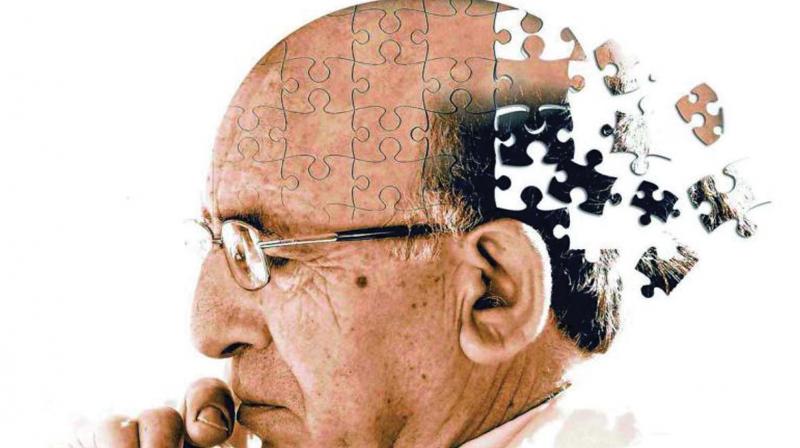It's possible to fight dementia with proper care

Dementia is a collective name for a group of diseases, all of which affect memory, thinking, behaviour and emotions of an individual. There are various causes for dementia, of which Alzheimer’s appears to be the most common one. It is named after Alois Alzhiemer, a German psychiatrist who first described it. It is important to understand that dementia is not just amnesia, as not just memory is affected. Further, all dementias are not of Alzheimer’s variant, though it is the most common type.
Globally, dementia is one of the biggest challenges we face with nearly 50 million people living with it worldwide. India has around 4 million people with some forms of dementia.
The rising incidence of dementia can partially be attributed to the increased life expectancy due to increased standards in healthcare. However, it is unfortunate that there exists a lot of stigma and misinformation surrounding it.
Alzheimer’s dementia typically occurs in old age, though early onset cases are also reported. People are often brought by children or relatives with complaints of forgetfulness, often extending beyond the normally expected senile forgetfulness. They are often not able to correctly say since when the problems have started because of the gradual onset of the symptoms. People with dementia may start to forget routine things of daily life. They may forget that they had breakfast or dinner, and may again ask for the same. Advancing age, family members with Alzheimer’s and trauma appear to be the risk factors for dementia, of which age has the most association.
In addition to forgetfulness, people with dementia are prone to develop various behavioural and psychological symptoms. These are often an important cause of distress and difficulty to the bystanders. In fact, many a time bystanders became aware of the illness only when the behavioural disturbances become pronounced. Behavioural and psychological symptoms of dementia may include aggression, mood swings, irritability, reduced sleep and hostility. Some patients may develop undue suspiciousness, especially towards caretakers. The patient may start to feel that the caretaker is trying to harm them, or that they are taking away money and valuables from them.
Diagnosis of dementia can be a devastating experience for the individual and family alike. Patient may often get depressed in the immediate aftermath of diagnosis, provided it is a mild stage of dementia. In moderate to severe cases, the patient may not be able to understand the diagnosis and may appear unaffected. The patient requires through psychological evaluation and support to overcome the initial shock. Family members also may develop a shock-like reaction once the diagnosis is made.
It is important to understand and accept the diagnosis of dementia with through presence of mind. Mental health professionals can help on that count. Once the diagnosis of Alzheimer’s, or any other dementia is made, it is important to follow instructions from the neurologist and psychiatrist. There are various medications useful in slowing the progression of dementia. Further, behavioural and psychological symptoms of dementia can be controlled by the use of various medications. Dementia care requires a team approach, including psychiatrists, neurologists, psychologists and social workers.
Managing caregiver burden is important in dementia management. Severe memory loss coupled with prominent behavioural changes can result in caregiver burnout. It is very important to acknowledge and understand various behavioural issues among demented as a part of their illness, and not as their purposeful acts. Often, regression of brain results in a childlike behaviour, making things difficult for caregivers.
With proper medications and life style management, near normal behaviour can be restored in people with dementia. Restoring lost memory may not be possible always though. Further, quality of life of the demented person can be increased significantly with proper treatment. Providing care for someone with Alzheimer’s disease or another dementia can be both rewarding and challenging. In the early stages of dementia, a person may remain independent and need very little care. However, as the disease progresses, care needs will intensify, eventually leading to a need for around-the-clock assistance.
(The writer is Dr Cijo Alex a consultant psychiatrist, Navajyothi De addiction Clinic, Believers Church Medical College Hospital, Thiruvalla.)

